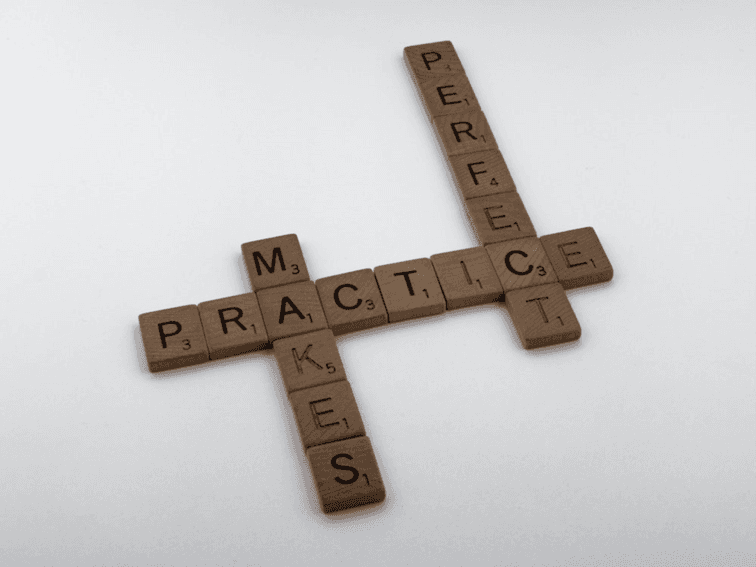Memorization is a crucial skill that can help us in various aspects of our lives, from acing exams to recalling important dates and information. However, it can also be a challenging task, as our brains are not always able to retain information easily. In this blog, we will explore different techniques and strategies for improving our memory and making the process of memorization more efficient and effective. Whether you are a worker looking to boost your productivity or simply want to improve your memory for everyday tasks, this blog is for you.

What type of skill is memorization?
Memorization is the process of committing information to memory so that it can be retrieved later. This is often done through repetition and practice, and it can be a helpful tool for learning and retaining knowledge about a wide variety of subjects, such as facts, formulas, vocabulary, and procedures.
Some people may find it easier to memorize information by creating mental associations or using mnemonic devices, while others may prefer to use physical aids such as flashcards or diagrams.
Memorization can be an important part of the learning process, but it is not always the most effective or efficient way to understand and retain information. In many cases, it is more effective to actively engage with the material, such as by discussing it with others or applying it in a practical context, in order to truly understand and retain it.
What is the process of memorization?
The process of memorization involves encoding, storing, and retrieving information.
Encoding
This is the process of converting the information you want to remember into a form that your brain can store. This can involve actively trying to understand and make sense of the information, as well as using techniques such as mnemonic devices or visualization to help commit the information to memory.
Storage
Once the information has been encoded, it is stored in the brain in a network of neurons (brain cells) and their connections (synapses). There are different areas of the brain involved in the storage of different types of information, such as long-term memories, short-term memories, and sensory memories.

Retrieval
When you want to access a memory, the process of retrieval involves recalling the stored information from the brain. This can be influenced by a variety of factors, such as the strength of the memory trace, the emotional content of the memory, and the context in which the memory was originally encoded.
There is still much that researchers do not fully understand about the process of memorization, but these three stages provide a general overview of the basic process.
Why is it important to have a good memory in the workplace?
Having a good memory can be beneficial in the workplace for several reasons.
First, having a good memory can help you retain important information related to your job. This can include details about your job duties, company policies, and procedures, as well as information about your colleagues, clients, and customers. This can help you perform your job more efficiently and effectively, and can also help you make better decisions and solve problems.
Second, having a good memory can help you build and maintain relationships in the workplace. Remembering details about your colleagues, such as their names, positions, and interests can help you build rapport and improve communication with them. This can be especially important if you work in a team or need to collaborate with others on projects.
Finally, having a good memory can help you advance in your career. Being able to retain and recall important information can demonstrate your knowledge and expertise to your employer and can help you stand out from your colleagues. It can also help you prepare for job interviews, where you may be asked to demonstrate your knowledge and experience.
Overall, having a good memory can be an important asset in the workplace, as it can help you perform your job effectively, build and maintain relationships, and advance in your career.
What is the best memorization method?
There are many different ways to improve your memory, and what works best for you may depend on your personal learning style and the type of information you are trying to remember.
There are several techniques that can help you improve your workplace performance by improving your memory and recall. Here are a few examples to learn and memorize easily:
Repetition
Repeating information over and over can help commit it to memory. This can be done through activities such as saying the information out loud, writing it down, or reviewing it at regular intervals.
Association
Creating associations between new information and things you already know can make the information easier to remember. For example, you might associate a list of words with a rhyme or a familiar phrase, or you might associate a concept with a visual image or a story.
Mnemonic devices
Mnemonic devices are techniques that help you associate new information with something you already know, making it easier to remember. For example, the acronym "ROY G. BIV" is a mnemonic device used to help remember the colors of the rainbow (red, orange, yellow, green, blue, indigo, violet).
Organization
Organizing information into categories or using mnemonic devices (such as acronyms or memory palaces) can help you remember it more easily. Try to group related information together and come up with a logical structure for organizing the material. This can make it easier to remember and understand the information.

Elaboration
Taking the time to deeply think about the information and how it relates to other things you know can also help you remember it better.
Get plenty of sleep
Adequate sleep is important for memory consolidation, so make sure you are getting enough rest. It's also important to get enough sleep and to be in a good state of mind when trying to memorize new information.
Spacing
Spacing out your study sessions over a longer period of time can help you retain information better than trying to cram all of your studying into a single session. So, take breaks. Taking breaks can help give your brain time to process and consolidate the information you are trying to learn.
Visualization
Creating mental images or visualizations can help you remember information more easily. For example, if you are trying to remember a list of words, you might try creating a mental image that includes all of the words.
Chunking
Breaking larger pieces of information into smaller chunks can make it easier to remember. For example, instead of trying to remember a long string of numbers, you might group them into smaller blocks of two or three digits each.

Pay attention
It's much easier to remember information if you are actively engaged and focused on the material. Try to eliminate distractions and give the material your full attention.
Practice recalling
Practicing recalling the information from memory, rather than just re-reading it, can help reinforce the information in your mind. You can do this by writing the information down from memory or quizzing yourself on it.

By using these techniques, you can improve your memory and recall, which can help you perform better at work.
Enhance your eating habits to memorize
There are several ways to enhance your eating habits to support good memory:
·Eat a balanced diet: A diet rich in fruits, vegetables, whole grains, and lean proteins can help support good brain health and memory.
·Get enough healthy fats: Healthy fats, such as those found in nuts, avocados, and olive oil, are important for brain function.
·Include antioxidant-rich foods: Antioxidants help to protect the brain from oxidative stress, which can damage cells and contribute to age-related memory decline. Foods high in antioxidants include berries, leafy greens, and dark chocolate.
·Stay hydrated: Dehydration can negatively impact memory and cognitive function, so it's important to drink plenty of water throughout the day.
·Eat less added sugar: Consuming too much added sugar can contribute to inflammation and other health problems that can affect memory.
·Don't skip meals: Skipping meals can disrupt blood sugar levels and negatively impact memory and cognitive function.
·Consider adding supplements: Some studies have suggested that certain supplements, such as omega-3 fatty acids and vitamin E, may have a positive impact on memory. However, it's always best to speak with a healthcare provider before starting any new supplement regimen.

